ETH News
All stories that have been tagged with Research
AI in a mini-lab or putting precision to the test
- News
- Homehero
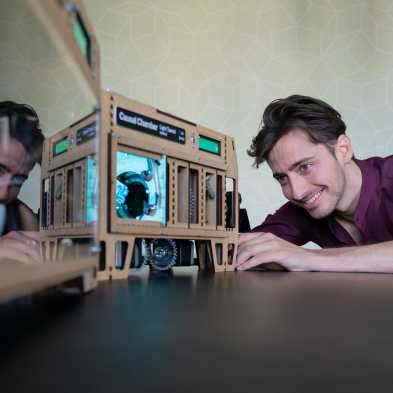
New miniature laboratories are ensuring that artificial intelligence (AI) doesn’t make mistakes. They provide a controlled test environment where algorithms and AI models can be checked before being put to work under real-life conditions. The aim is for AI to work reliably.
Super-fast computers for AI: Torsten Hoefler awarded prestigious ACM Prize
- News
- Homehero

Torsten Hoefler wins the prestigious ACM Prize in Computing for his pioneering work in high-performance computing. The fact that supercomputers have become so powerful that AI models can be trained very quickly with very large volumes of data is partly down to his research.
Were large soda lakes the cradle of life?
News

Life needs sufficient phosphorus. However, the element is scarce, not only today but also at the time of the origin of life. So where was there sufficient phosphorus four billion years ago for life to emerge? A team of origin-of-life researchers has an answer.
Origin of Life: How microbes laid the foundation for complex cells
News

Who were our earliest ancestors? The answer could lie in a special group of single-celled organisms with a cytoskeleton similar to that of complex organisms, such as animals and plants. ETH researchers made these findings in a new study.
“Switzerland’s glaciers could vanish completely by 2100”
News
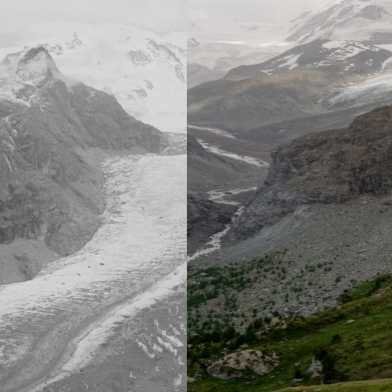
Switzerland’s glaciers are in increasingly poor shape. If greenhouse gas emissions are not cut drastically soon, they could cease to exist by 2100 – so says ETH Professor Daniel Farinotti in this ETH News interview to mark the first World Day for Glaciers.
Could the layout of trees impact human health?
News
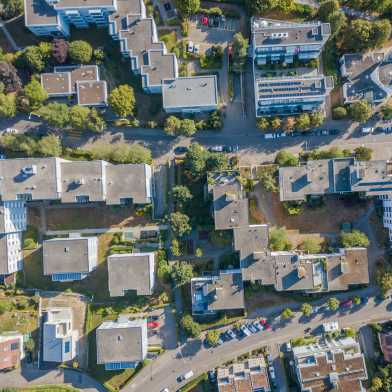
A long-term Switzerland-wide study has found that neighbourhoods with numerous, well-arranged trees exhibit lower mortality risks than other areas. The reasons behind this, and the factors that play a role, will require further research.
Trust is a social bond
- News
- Globe magazine
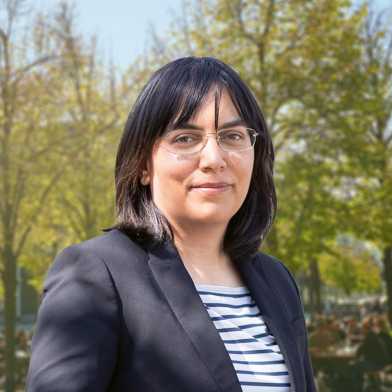
How does disinformation impact public trust in science? And can healthy scepticism be a good thing? A debate between climate researcher Sonia Seneviratne, communication scientist Mike S. Schäfer and former Swiss Federal Chancellor Walter Thurnherr.
Trust: an invisible glue
- Homehero
- News
- Globe magazine

When it comes to getting along together, trust plays an indispensable role. While we all have an intuitive grasp of what this interpersonal investment involves, even science struggles to express exactly how it works.
Towering feat in an alpine village
- Homehero
- News
- Globe magazine
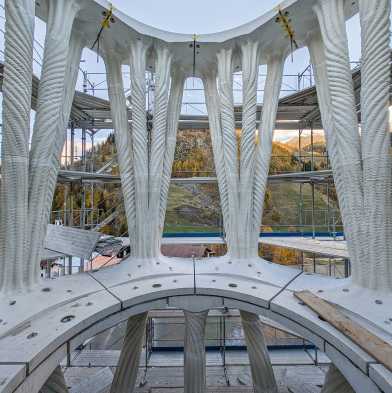
ETH Zurich has fabricated the world’s tallest 3D-printed structure. With the construction of the White Tower in Mulegns, researchers hope to bring innovative technologies to commercial maturity.
The amount of selenium in the environment also has an impact on health
- News
- Homehero
- Globe magazine
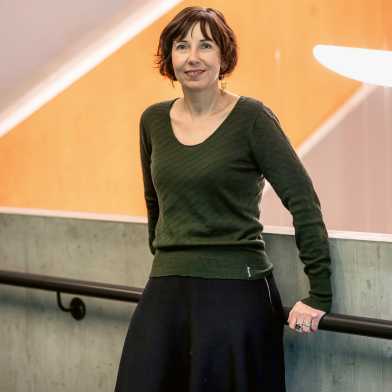
Lenny Winkel researches the environmental behaviour of trace elements such as selenium. A native of the Netherlands, she adores the Swiss mountains.
Small steps on the road to peace
- News
- Homehero
- Globe magazine

Trust takes years to build and seconds to break – not least when it comes to international relations. ETH researchers investigate what it takes to build confidence on the global stage.
Reasons to feel confident
- News
- Homehero
- Globe magazine
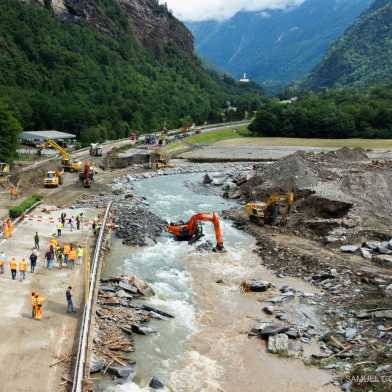
From bridges and tunnels to railways, Switzerland has always invested heavily in the upkeep of its infrastructure. But how does it keep everything operating safely and smoothly while also instilling confidence that nothing will go wrong?
Trustworthy AI – reliable and predictable
- Homehero
- News
- Globe magazine

Trust in AI models is about more than just technical performance – ethical principles and human values are equally important.
Making AI more accessible in football
News

Technology is improving football – from helping referees make more accurate decisions to developing better on-field tactics. ETH Zurich and FIFA are exploring how AI can make these advancements more accessible to competitions worldwide.
“Everyone else appears to be on top of everything”
News

What is it like to study at ETH Zurich? Sally Liu shares an insight into her daily life as a student – and explains why she finds it so important to speak openly about challenges.
Tiny component for record-breaking bandwidth
News

A modulator developed by researchers from ETH Zurich has broken the terahertz mark. The ultrafast component efficiently transmits large volumes of data into the fibre-optic network in a short space of time.
ETH Zurich still the world’s best university in earth sciences and geophysics
News

In a total of 16 disciplines, the university ranks among the 10 best in the world. These are the latest results of the QS World University Rankings according to subject.
This nanotube has a nose for oxygen
News

ETH researchers have developed a low-cost sensor made of carbon nanotubes that can selectively, efficiently and reliably measure minute quantities of oxygen in gas mixtures under light. The detector could be widely used in industry, medicine and environmental monitoring.
How regulation can keep pace with technological development
News

Of all places, Switzerland – the most innovative country in the world – suffers from a shortage of new digital technologies reaching the market in the healthcare sector. Researchers from ETH Zurich have been investigating how innovations can be developed responsibly and implemented faster.
Crystal lattice at a distance
News

Researchers at ETH Zurich have developed a method that makes it easier to study interactions between electrons in a material. Using a moiré material consisting of twisted atomic layers they created an artificial crystal lattice in a neighbouring material.
Fundamental and applied research are two sides of the same coin
News

Annette Oxenius has been appointed ETH Vice President for Research. From 1 August 2025, she will assume responsibility for research development and promotion at ETH Zurich. The 56-year-old Swiss national is an esteemed immunologist and professor at the ETH Department of Biology.
The pupil as a window to the sleeping brain
News

For the first time, researchers have been able to observe how the pupils react during sleep over a period of several hours. A look under the eyelids showed them that more happens in the brain during sleep than was previously assumed.
Why anti-immigration parties are seeing success
News

A new study by ETH researchers shows that the success of anti-immigration parties in Switzerland’s border regions is not due to the effects of migration itself, but rather to their rhetoric.
Complete breakdown of plexiglass into its building blocks
News

Polymer chemists at ETH Zurich have discovered a surprising way to virtually fully break down PMMA plastic – commonly known as acrylic glass – into its monomer building blocks. The process remains unaffected by the presence of additives.
Artificial intelligence helps with the design and maintenance of bridges
News
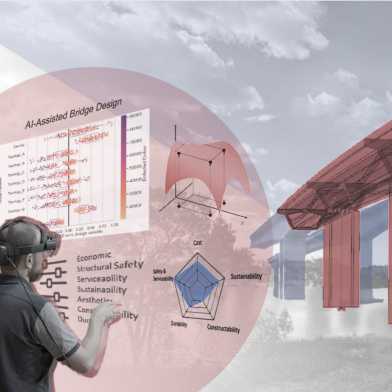
To extend the lifespan of existing railway bridges and conserve resources, ETH researchers are working with Swiss Federal Railways (SBB) to develop new prediction models using machine learning algorithms. An AI assistant also helps civil engineers with the design of new bridges.
Precision therapy with microbubbles
News

ETH Zurich researchers have investigated how tiny gas bubbles can deliver drugs into cells in a targeted manner using ultrasound. For the first time, they have visualised how tiny liquid jets generated by microbubbles penetrate the cell membrane enabling the drug uptake.
Storing CO2 underground in Switzerland
News

For Switzerland to achieve its net zero climate target, not only must it reduce its CO2 emissions, it must also find a way to store the greenhouse gas permanently. Researchers at ETH Zurich have investigated whether, and under what conditions, CO2 could be stored underground in Switzerland.
A new switch for the cell therapies of the future
News

ETH researchers have developed a new gene switch that can be activated using a commercially available nitroglycerine patch applied to the skin. One day, researchers want to use switches of this kind to trigger cell therapies for various metabolic diseases.
ETH students simulate Venus mission
- News
- Homehero
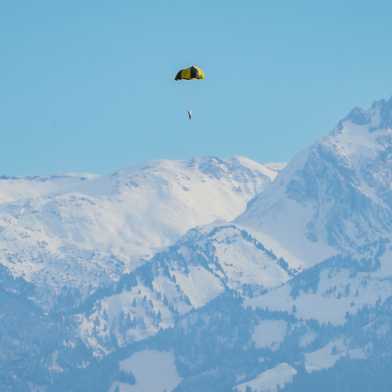
ETH students have simulated an exploration mission to Venus by launching self-built test satellites from a plane over Dübendorf military airfield. These satellites glided to the ground with parachutes, recording acoustic signals during their descent.
Ice streams move due to tiny ice quakes
- Press release
- News

For the first time, an international team of researchers has shown that countless tiny ice quakes take place in one of Greenland's mightiest ice streams. This finding will allow the flowing of the ice stream and associated changes in sea level to be estimated more accurately.
Obese and healthy
News
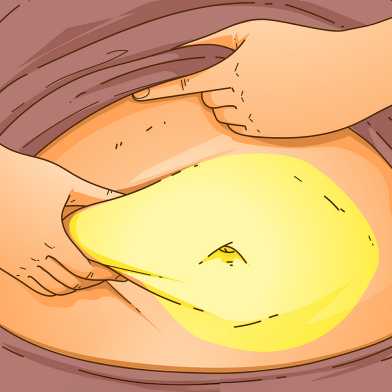
Body weight and body mass index alone are not enough to predict whether someone will develop a metabolic disease. A new atlas of cells in fat tissue could help to explain why some overweight people stay healthy, while others do not.
From ETH to clinical practice: medical research requires cooperation
News
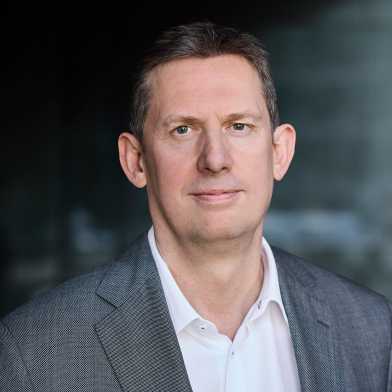
Medical research needs unresolved issues from clinical practice, says ETH Zurich Vice President Christian Wolfrum. He explains in an interview how cooperation between ETH research and hospitals can be improved and why ETH intends to pool its activities in medical research.
Bones respond positively to external forces
News
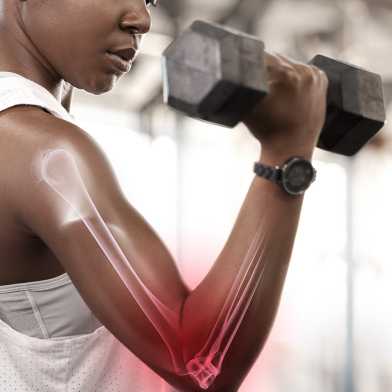
Researchers aim to use vibrations to stimulate bone growth. Now, a new study paves the way for developing new therapies that may one day benefit patients suffering from bone fractures and age-related bone loss.
Dissolving clusters of cancer cells to prevent metastases
- Press release
- Homehero

Successful test in breast cancer patients: the active agent digoxin, a cardiac medication, dissolves clusters of circulating breast cancer cells in the blood, thus reducing the risk of metastases formation.
What location data reveals about you
- News
- Zukunftsblog
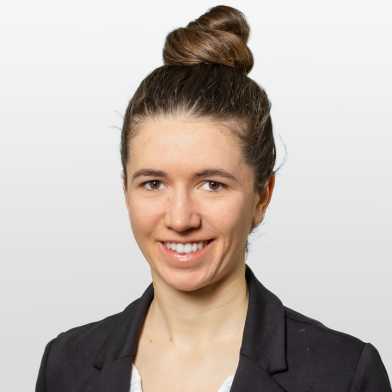
Location data allows rich insights into private details about our lives: where we live and work, how we spend our free time and what is important to us, says Nina Wiedemann. This poses a considerable security risk – even if we have nothing to hide.
New method detects corrosion in reinforced concrete, even in hard-to-reach places
News

Whether tunnels or retaining walls – many Swiss reinforced concrete structures from the 1960s to the 1980s are at risk. Corrosion can make them unstable. ETH start-up Talpa Inspection has now developed a solution to localise corrosion more easily, even in hard-to-reach places.
These three GenAI collaborations show the power of science diplomacy
- News
- Zukunftsblog

Science diplomacy can transcend the geopolitical arena, building trust and bridging gaps between nations, emphasises Joël Mesot. And presents three partnerships in generative AI that highlight the power of cross-sector cooperation – for humanitarian and peacekeeping missions as well as trustworthy AI.
Spinning for science
News
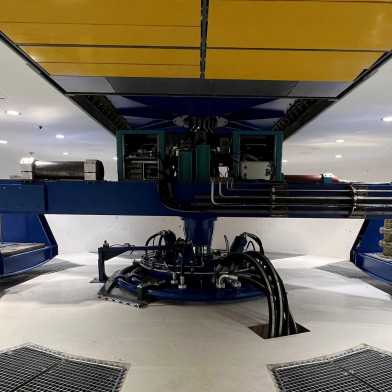
Planning and building Europe’s largest capacity geotechnical centrifuge took seven years. Now, after one and a half years of operation, its official inauguration is finally being celebrated at the Hönggerberg campus. And it’s no coincidence that this is happening in mid-January.
The cost of climate-neutral aviation in the future
News

Flight ticket prices could rise by 50 percent if aviation is made climate-neutral. This is an estimate from a new study by researchers at ETH Zurich. It is based in particular on the use of synthetic fuels.
Zigzags for greener construction
- News
- Homehero
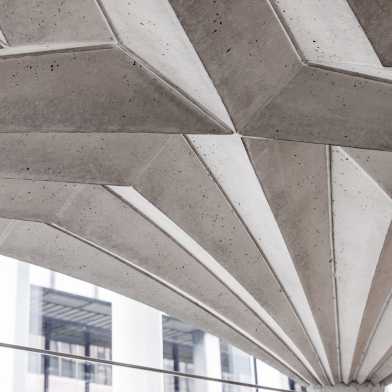
An architecture PhD student at ETH Zurich has developed a simple solution for building concrete floors in a more climate-friendly way. Significant amounts of concrete and steel can be saved thanks to a lightweight, robust and reusable formwork design.
Four SNSF Advanced Grants go to ETH Zurich researchers
News

A biologist, a neuroscientist, a materials scientist and a physicist have each been awarded one of the prestigious grants of the Swiss National Science Foundation.
Stress tests for the Swiss power system
News
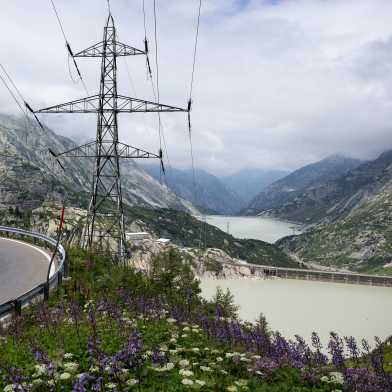
Researchers from ETH Zurich and ZHAW Winterthur are simulating in a new study how the future Swiss power system could be structured to withstand a drastic fall in gas and electricity imports. By doing so, they aim to contribute to the discussion surrounding Switzerland’s supply security.
“The biggest challenge is lacking public acceptance of wind turbines”
News
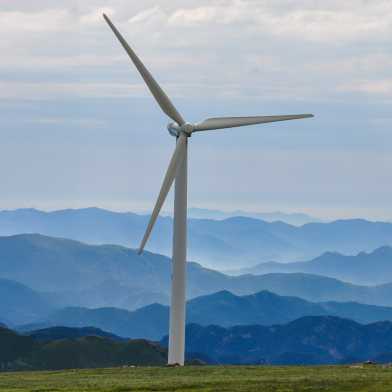
An international team of researchers has examined the environmental, social, economic and legal aspects of wind energy. In this interview, Russell McKenna, an expert in energy system analysis, explains where he sees the greatest need for action to further develop wind energy.
Sustainable building components create a good indoor climate
- News
- Homehero
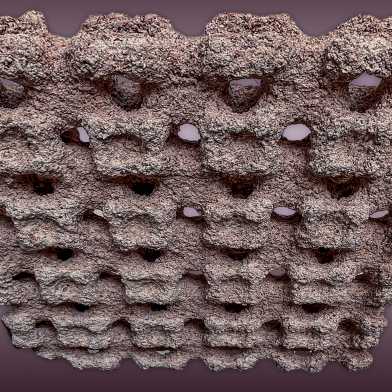
Researchers at ETH Zurich have developed a climate-friendly covering for walls and ceilings that temporarily stores moisture, creating a comfortable environment in heavily used indoor spaces. The covering components are made of mineral waste materials and are produced by means of 3D printing.
Interpreting traces of arsenic in rain
News
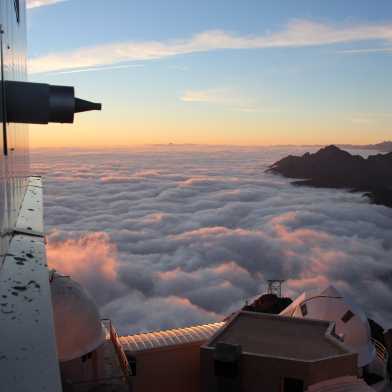
On the Pic du Midi in the Pyrenees, ETH Zurich researchers have analysed particulate matter, clouds and rainwater for traces of arsenic. Using newly developed measurement methods, they have elucidated the transport pathways of the environmental toxin in the atmosphere.
Sunken worlds under the Pacific?
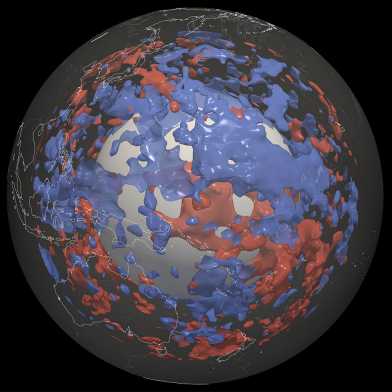
Geophysicists at ETH Zurich are using models of the lower mantle to identify areas where earthquake waves behave differently than previously assumed. This indicates the presence of zones of rocks that are colder, or have a different composition, than the surrounding rocks. This finding challenges our current understanding of the Earth's plate tectonics – and presents the researchers with a major mystery.
The view from space – and what it tells us
- News
- Globe magazine
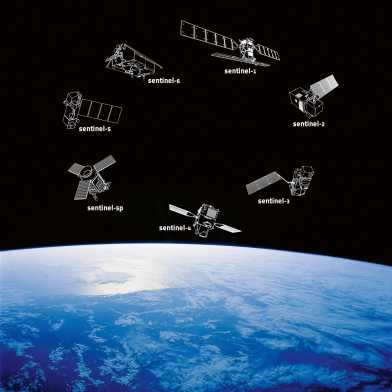
Earth-observation satellites deliver data for a wealth of applications – from monitoring climate change and documenting war crimes to planning disaster relief and assessing snow depth. ETH researchers are also big beneficiaries.
The year 2024 at ETH Zurich
News
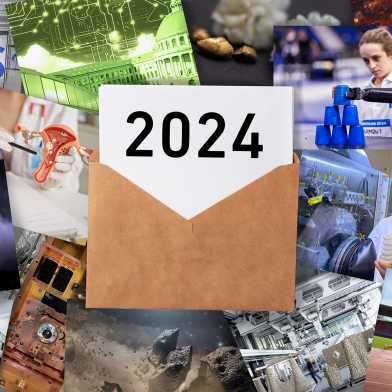
2024 saw ETH Zurich once again confirm its position as a global leader in research and teaching – be it in the field of biology, energy sciences or space research.
Energy from underground
News
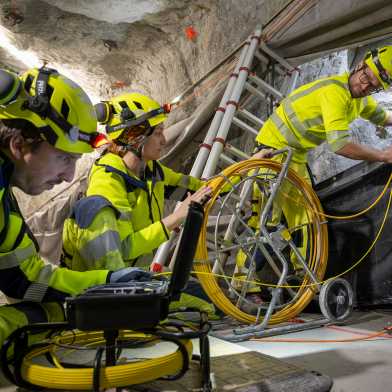
Deep geothermal energy is climate-friendly and base-load capable - but how can this heat be tapped safely? ETH researchers are working on minimizing the earthquake risk and developing completely new systems, for example with closed CO2 cycles.
Why we need space exploration
- News
- Globe magazine
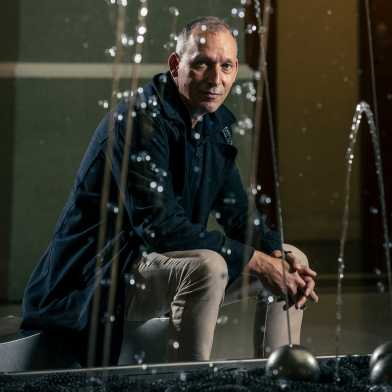
Thomas Zurbuchen, Director of ETH Zurich Space, explains how Switzerland can do a better job of exploring and exploiting space – and how there’s still enormous potential to be tapped.
The quest to explore space
- News
- Homehero
- Globe magazine
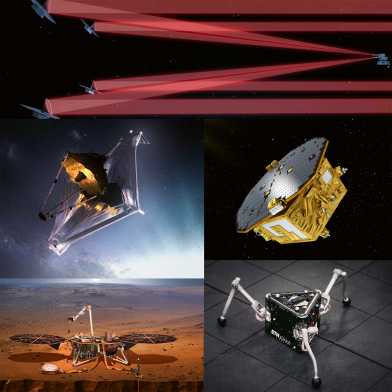
ETH Zurich is involved in a number of space missions – from satellite-based searches for signs of life on exoplanets to the hunt for gravitational waves with the LISA space antenna. These projects rely on strong partnerships with the aerospace industry.
“Exercise and social interaction are key stress relievers”
- News
- Homehero
- Globe magazine
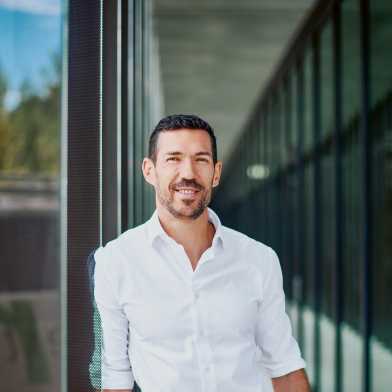
Neuroscientist Johannes Bohacek investigates the molecular basis of stress in the brain. He originally wanted to become a psychotherapist.
“We needed to know how far and how fast the event could travel”
News
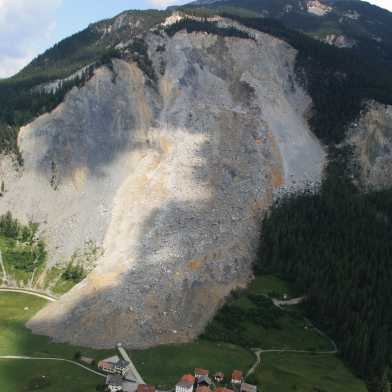
Brienz has just been evacuated for the second time. The decision is based, among other things, on thousands of simulations that ETH professor Jordan Aaron has produced using a computer model he developed. In an interview with ETH News, he explains why this model was used.
Robots help deliver gifts
News
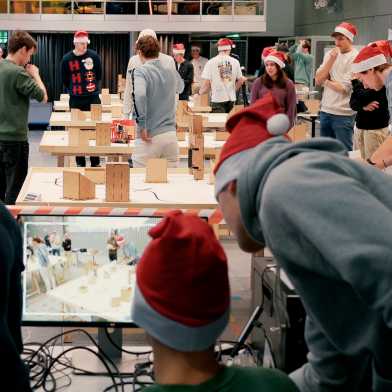
This year’s Innovation Project required ETH students to develop kit-based robots capable of delivering gifts down the chimneys of model-sized houses. The ten best teams will compete against each other in the final on 17 December.
Delivering medicines with microscopic flowers
News
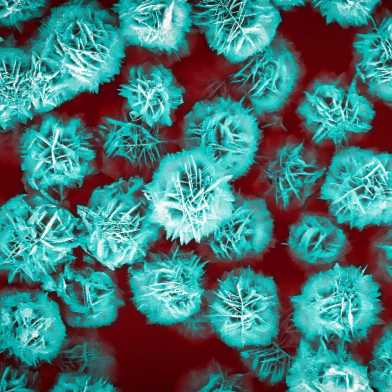
These small particles are reminiscent of paper flowers or desert roses. Physicians can use them to guide medicines to a precise destination within the body. Better yet, the particles can easily be tracked using ultrasound as they scatter sound waves.
Timber, earth and a digital ecosystem for sustainable construction
News
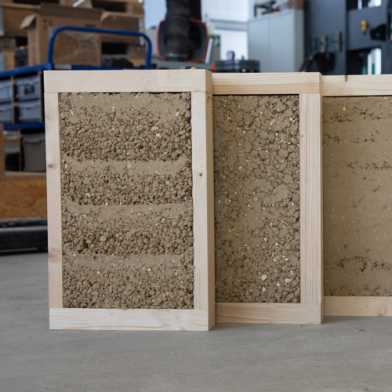
Two flagship projects from Innosuisse have been launched at ETH Zurich with the aim of transforming the Swiss construction industry in a sustainable way: While "Swircular" lays the foundation for a circular construction industry, "Think Earth" enables regenerative construction with timber and earth.
How the latest sensors analyse body fluids
News
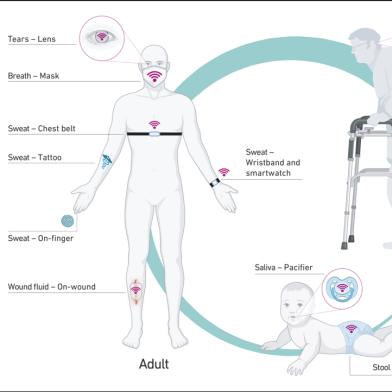
A new generation of wearable sensors will fundamentally change medicine. Researchers at ETH Zurich and international experts have now published an overview showing what is possible with such sensors and what questions their developers should consider to ensure their successful future use.
CRISPR-Cas technology: balancing efficiency and safety
News
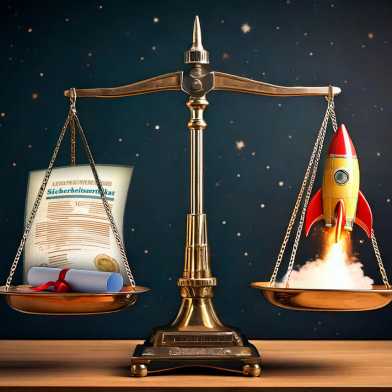
ETH Zurich researchers have uncovered a serious side effect of using the CRISPR-Cas gene scissors. A molecule designed to make the process more efficient destroys parts of the genome.
“We should take a more relaxed approach to sleep”
News
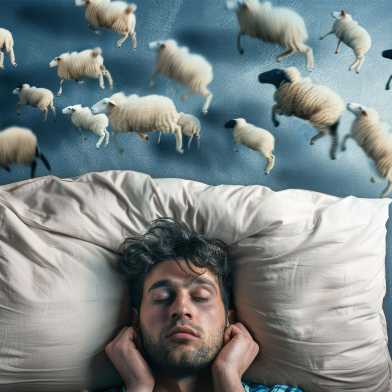
Sleep problems have become a widespread issue. In a new popular science book and in an interview with ETH News, ETH sleep researcher Caroline Lustenberger describes the do’s (and don’ts) for when you can’t get to sleep.
Previously unknown compound in chloraminated drinking water identified
News

Since the 1980s, it’s been known that a mysterious contaminant forms in chloraminated drinking water, but only now has a Swiss-American research team been able to identify the unknown product in US drinking water systems.
Eight SNSF Starting Grants for ETH researchers
News

Four women and four men successfully applied for Starting Grants from the Swiss National Science Foundation via ETH Zurich.
Cause of the yo-yo effect deciphered
Press release
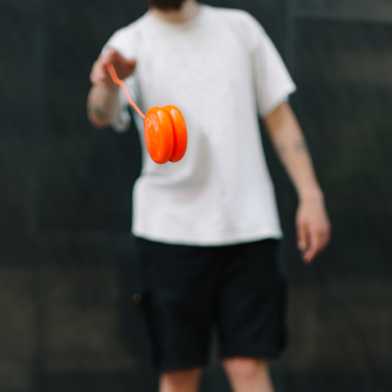
Researchers at ETH Zurich have discovered a mechanism behind the yo-yo effect: fat cells have a memory that is based on epigenetics.
ETH Zurich team takes home a quarter million in biodiversity prize
Homehero
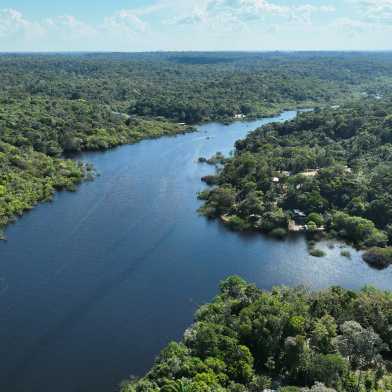
The XPRIZE Rainforest competition acknowledged ETH Zurich-led team for its development and deployment of novel, autonomous technologies that enable near real-time insights about biodiversity.
Behavioural analysis in mice: more precise results despite fewer animals
- Homehero
- News

Researchers at ETH Zurich are utilising artificial intelligence to analyse the behaviour of laboratory mice more efficiently and reduce the number of animals in experiments.
Everyday routines as the key to logging in
News

Smart homes are intended to make life easier, but logging into individual devices is often still an onerous task. Researchers from ETH Zurich have investigated how everyday routines could be used for secure and user-friendly authentication – with no need for cumbersome passwords.
Using CRISPR to decipher whether gene variants lead to cancer
News
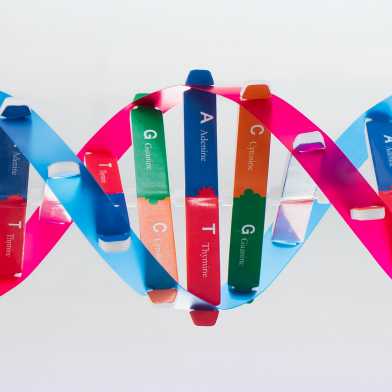
Researchers at ETH Zurich have combined two gene editing methods. This enables them to quickly investigate the significance of many genetic mutations involved in the development and treatment of cancer.
Between crystals, cats and quantum
- News
- Homehero
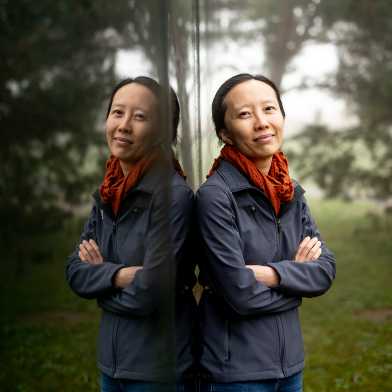
ETH Professor Yiwen Chu is investigating how to apply quantum states to ever larger objects. This should help to gain new insights into physics and develop more efficient technologies. She has now been awarded the ETH Zurich Latsis Prize for her outstanding research.
Researchers are making jet engines fit for the hydrogen age
News

Hydrogen-powered planes are set to take wing around the world in the future. To make this possible, engineers have to develop the jet engines that will power them. Experiments by researchers at ETH Zurich are now providing the necessary basis for making these engines powerful and durable.
ERC Synergy Grant for Sebastian Kozerke
News
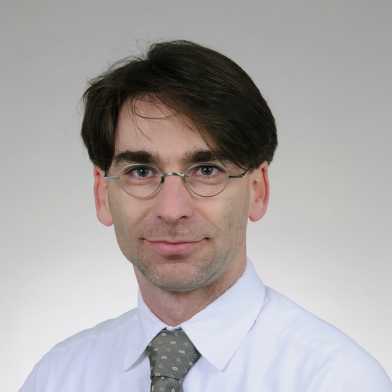
A team of three European researchers will develop an imaging method to non-invasively measure the stiffness of moving organs such as the heart. The researchers will be supported by the European Research Council.
“The way that our cities, houses and flats are built right now makes us feel dependent.”
- News
- Homehero
- Globe magazine
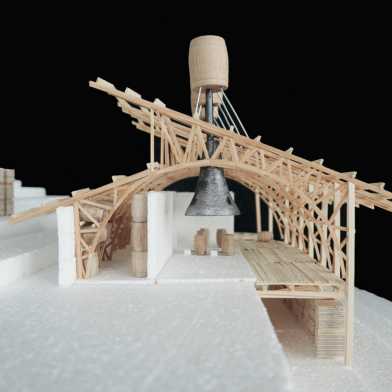
For many people, architectural norms create barriers to accessibility. How might we re-imagine our built environment to make it more inclusive?
Strengthening the Swiss electricity grid with copper and brains
News
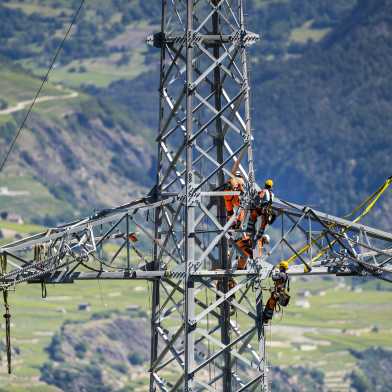
A secure supply of electricity from renewable energies can only succeed if we also modernise the grid infrastructure. At the Energy Science Centre (ESC), ETH researchers are looking for smart ways to make the electricity grid fit for the energy transition without expensive expansion.
His delicate filament scaffolds allow cells to grow perfectly
News
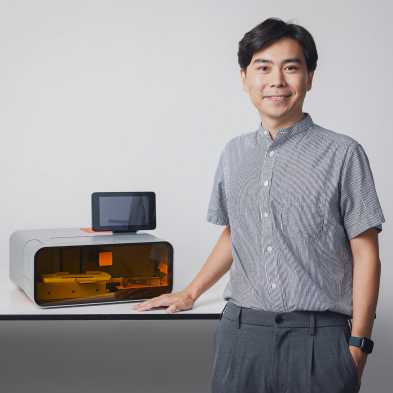
Pioneer Fellow Hao Liu uses lasers to produce microfilament structures to grow biological tissue in the lab for research and medicine – from muscle tissue to cartilage. Now he’s working to ready this technology for the market.
“Geoengineering will not solve the problem of climate change”
News

A team led by ETH climate researcher Sandro Vattioni has shown that diamond dust released in the atmosphere could be a good way to cool the climate. However, it is still not a sustainable solution to climate change, says Vattioni in an interview with ETH News.
The road to Net Zero is rocky, but feasible
- News
- Zukunftsblog
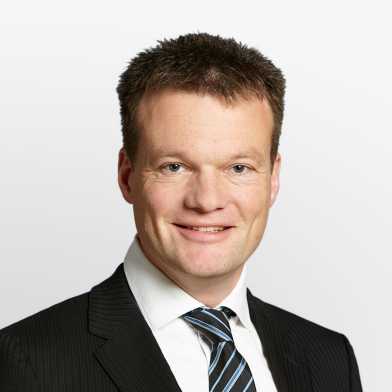
A sustainable transition to a climate-friendly and biodiversity-rich Switzerland is only possible if we tackle the energy transition, climate change mitigation and biodiversity loss together. This will not be easy, but it is worthwhile and ultimately indispensable, says Reto Knutti.
How law-abiding is AI? ETH researchers put it to the test
News

The EU AI Act is designed to ensure that AI is transparent and trustworthy. For the first time, ETH computer scientists have translated the Act into measurable technical requirements for AI. In doing so, they have shown how well today's AI models already comply with the legal requirements.
Catching prey with grappling hooks and cannons
News
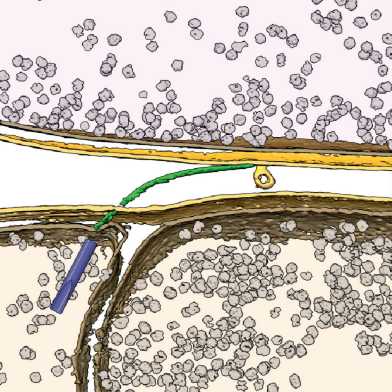
Researchers at ETH Zurich have analysed down to the smallest detail the unusual arsenal of weapons that a predatory marine bacterium has at its disposal. Perhaps one day these weapons could also be put to use in medicine.
Biofabrication should be sustainable
- News
- Zukunftsblog
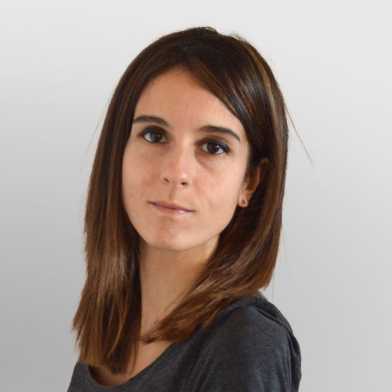
While living matter can advance technology and render human activities more efficient and eco-friendly, the way in which we currently fabricate materials containing living cells is far from sustainable. Miriam Filippi calls us to rethink our biofabrication practices.
Protein interactions: who is partying with whom and who is ruining the party?
News
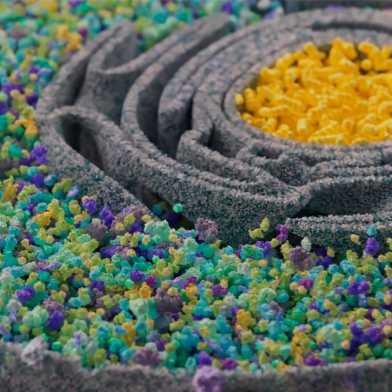
Using a new method, researchers at ETH Zurich can measure alterations in the social network of proteins in cells. This work lays the foundation for the development of new drugs to treat diseases such as cancer and Alzheimer’s.
Cancer researcher Andrea Alimonti honoured
News
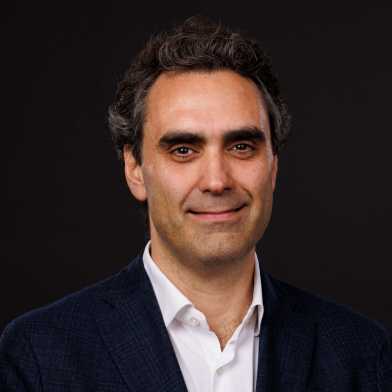
He studies cancer cells and their cellular environment in order to new therapies. Now, ETH Zurich Professor Andrea Alimonti is being awarded the Cloëtta Prize.
Record-breaking laser pulses
News
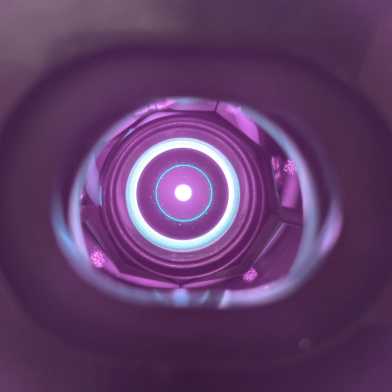
Researchers at ETH Zurich have developed a laser that produces the strongest ultra-short laser pulses to date. In the future, such high power pulses could be used for precision measurements or materials processing.
A stiff material that stops vibrations and noise
News
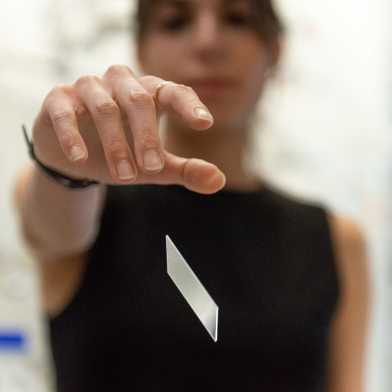
Materials researchers have created a new composite material that combines two incompatible properties: stiff yet with a high damping capacity.
How a bacterium becomes a permanent resident in a fungus
- News
- Homehero
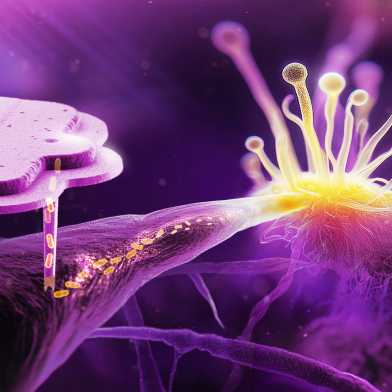
An organism as a tenant in another - in biology, this often works quite well. ETH researchers have now shed light on how such a partnership of a cell in a cell can establish.
Crop forecasting from space
News

ETH spin-off Terensis is able to forecast the harvest yield and climate risks such as droughts and frost with the help of satellites. This not only helps farmers to plan. Authorities and insurance companies can also predict damage more efficiently.
From cell partitions to dams: These barriers are being investigated by ETH researchers
- Globe magazine
- Homehero
- News

Research areas at ETH Zurich span barriers in a wide variety of fields, including cell biology, drug delivery and spatial planning. Below, we look at examples from six different disciplines.
Is there a perfect diet for a long life?
- News
- Homehero
- Globe magazine
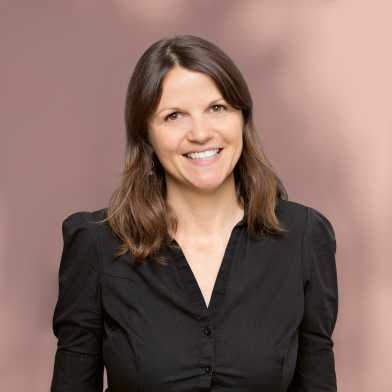
Nina Cabezas Wallscheid, Professor of Stem Cell Biology and Ageing, is researching the impact of nutrition on the human blood system. Her research team aims to identify the ideal diet for a long and healthy life.
Running without limits: When air creates no resistance
- Homehero
- News
- Globe magazine
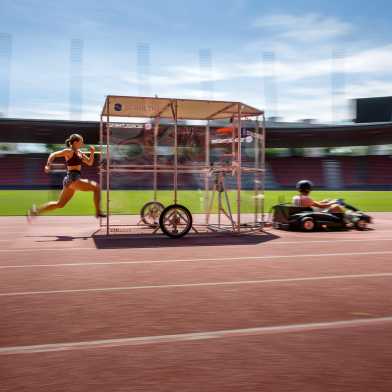
ETH student and top sprinter Géraldine Frey is preparing for her races with an innovative piece of equipment. Developed at ETH Zurich, the Airshield reduces aerodynamic drag, enabling athletes to train at speeds above their normal pace.
Antidepressant shows promise for treating brain tumours
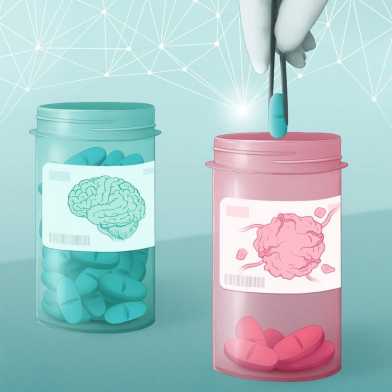
Researchers at ETH Zurich have used a drug screening platform they developed to show that an antidepressant, currently on the market, kills tumour cells in the dreaded glioblastoma – at least in the cell-culture dish.
How Ukraine can rebuild its energy system
News

Researchers at ETH Zurich have been working with researchers from Ukraine and Germany to investigate how to rebuild Ukraine’s destroyed energy infrastructure based on renewable energy. They have determined that solar and wind energy would quickly deliver a distributed power supply system and prevent corruption.
For UN Agenda: data gaps detected in 193 countries
News
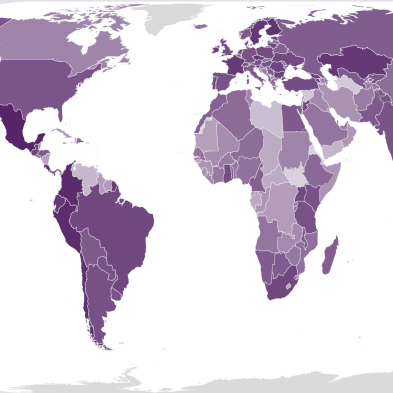
To make informed decisions, governments and international organisations need data. The United Nations has been analysing the global availability of such data together with ETH Zurich. This has brought to light some surprising insights.
Printing with earth-based materials
News
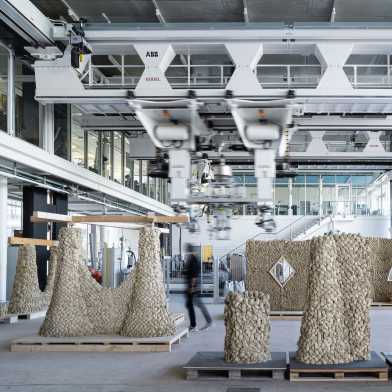
ETH Zurich researchers have developed a fast, robot-assisted printing process for earth materials that does not require cement.
Artificial muscles propel a robotic leg to walk and jump
News
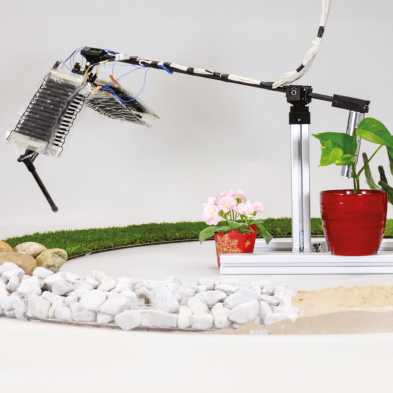
Researchers at ETH Zurich and the Max Planck Institute for Intelligent Systems have developed a robotic leg with artificial muscles. Inspired by living creatures, it jumps across different terrains in an agile and energy-efficient manner.
One-way street for sound waves
News
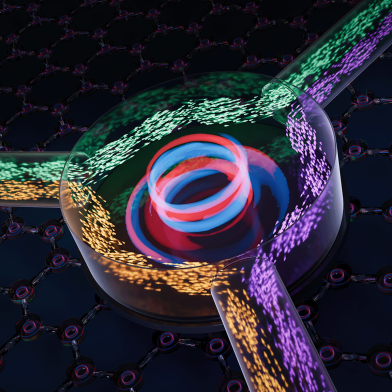
Researchers at ETH Zurich have managed to make sound waves travel only in one direction. In the future, this method could also be used in technical applications with electromagnetic waves.
Flexible tentacle electrodes precisely record brain activity
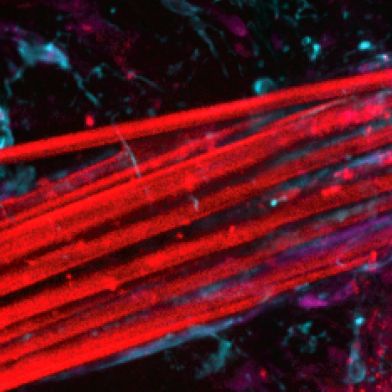
Researchers at ETH Zurich have developed ultra-flexible brain probes that accurately record brain activity without causing tissue damage. This opens up new avenues for the treatment of a range of neurological and neuropsychiatric disorders.
New pharmaceutically active substances from billions of newly combined molecules
News
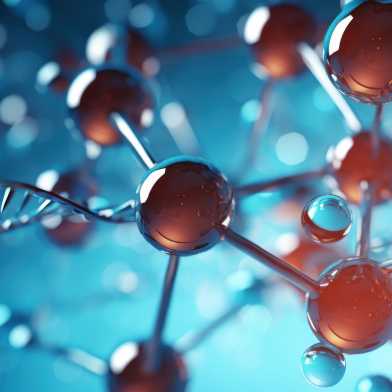
Pharmaceutical researchers often find new pharmaceutically active substances only by sifting through large collections of chemical compounds. Chemists at ETH Zurich have now made critical progress on a specific process for generating and searching these collections.
Iron as an inexpensive storage medium for hydrogen
News
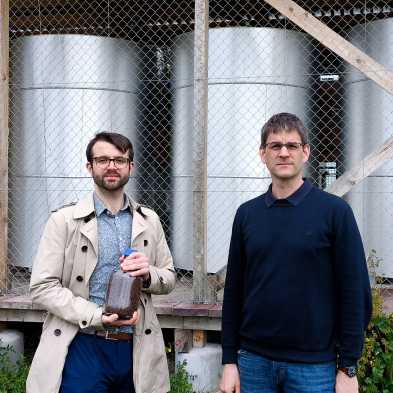
Researchers at ETH Zurich are using iron to store hydrogen safely and for long periods. In the future, this technology could be used for seasonal energy storage.
Chemical plastics recycling is ready to go
News

Scientists around the world can now go full throttle in their research into chemical plastics recycling. Researchers at ETH Zurich have laid important foundations for this by showing that it’s all about the stirring.
Operating from 9,300km away
Press release
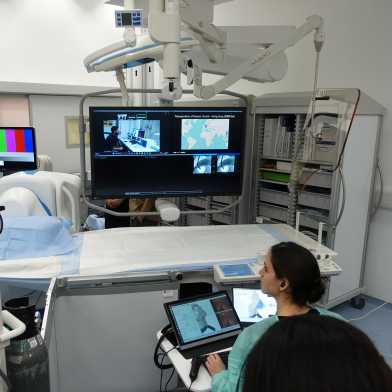
Researchers at ETH Zurich and The Chinese University of Hong Kong have succeeded for the first time in using remote control to perform a magnetic endoscopy on a live pig. The researchers controlled the probe from Zurich while the animal was on the operating table in Hong Kong.
ETH researchers receive SNSF grants
News

Four researchers from ETH Zurich have successfully applied for Consolidator Grants funded by the Swiss National Science Foundation.
Separating the physical and psychosocial causes of pain
- News
- Homehero

Not all pain is the same. Depending on the cause, it requires different therapies. A team led by ETH Zurich has now developed a method that enables physicians to better distinguish between physical and psychosocial pain.
Planets contain more water than thought
News
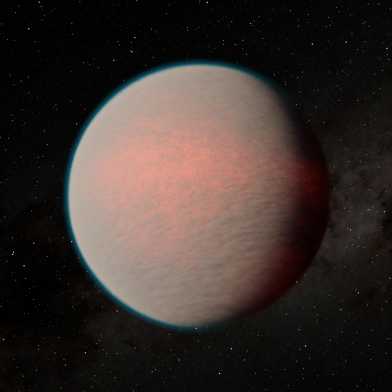
Most of a planet’s water is generally not on its surface but hidden deep in its interior. This affects the potential habitability of distant worlds, as shown by model calculations of researchers at ETH Zurich and Princeton University.